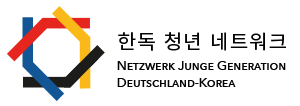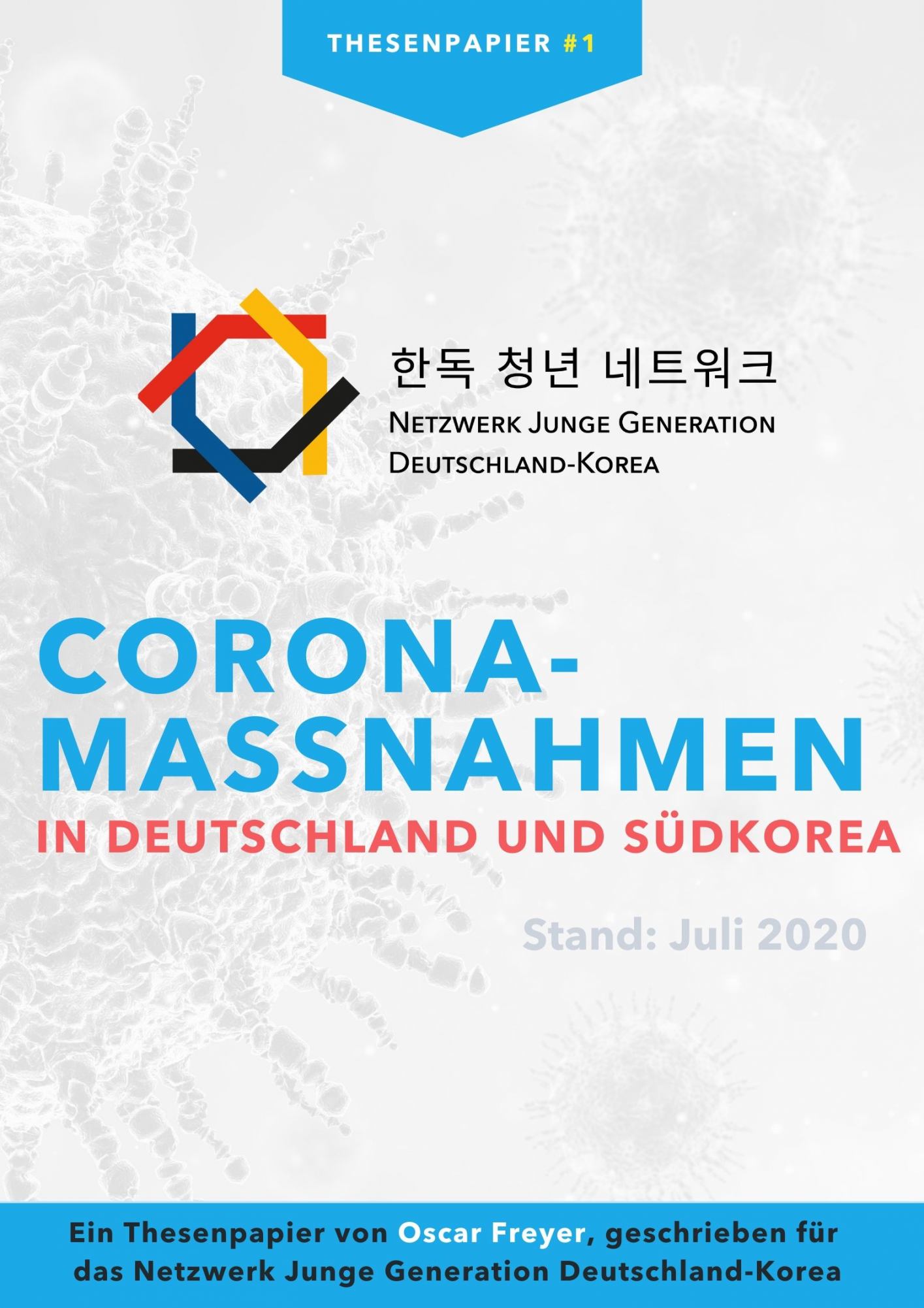Project Description
한독 청년 네트워크의 첫 번째 워킹페이퍼가 온라인에 게시되었습니다.
국문요약
로나19와 같은 글로벌 팬데믹은 공공보건, 일상 생활 그리고 경제 성장에 큰 위험이 됩니다.
대한민국은 초반부터 짧은 시간 내에 급증하는 신규감염자 수를 막을 수 있었다. 결정적인 요소는 정부의 신속한 대응이 감염자 수가 급증하기 전에 이루어 졌다는 것과 모든 조치를 효율적으로 후속 조치를 취한 것과 효율적인 접촉자 추적, 빠른 진단키트 개발과 보급, 그리고 국민들이 비약품적 예방조치에 적극 참여한 것이다. 그리하여 일일 신규감염자가 급속도로 상승하기 시작한 날로부터 11일 후에 전체 감염자 수를 1만여명에 안정시킬 수 있었다. 독일에서는 뒤늦은 대응으로 인해 전체 감염자수가 늘었고, 더 많은 사망자 수가 발생하고 일상 생활의 제한이 필요했다.
새로운 팬데믹의 위험 전에 불명확한 상황임에도 불구하고 빨리 대응한 정부와, 진단 역량을 늘리는 것과, 감염 고리를 추적하는 것과 감염자의 격리가 팬데믹 대응전략의 기반이 되어야 합니다. 이러한 초반에 도입되는 효과적인 조치로 팬데믹의 확산을 방지할 수 있고, 그로 인해 더 적은 제한 조치가 필요할 것이다.
이 워킹페이퍼는 독일어로 작성되었습니다.
Global pandemics, such as Covid-19, pose a threat to public health, daily life and economic development.
As a severely affected country early on, South Korea was able to quickly halt the trend of increasing daily new cases. Decisive factors in this were a rapid response by the government even before the exponential increase in cases and effective follow-up measures, highly effective contact tracing, rapid provision of tests and high compliance in the population for non-pharmaceutical prevention measures. As a result, it was possible to reverse the trend of daily new cases 11 days after the exponential increase began, thereby stabilizing the total number at approximately 10,000 cases. In contrast, the delayed response in Germany led to a significantly higher total number of cases, more deaths and more restrictions in public life.
A rapid response by the government despite the unclear situation, early development of testing capacities, effective tracing of infection chains and quarantining the affected should form the cornerstones of a pandemic control strategy. Strong measures at the beginning of a pandemic can halt its progression, thus reducing the need for restrictions later on.
Globale Pandemien wie Covid-19 stellen eine Gefahr für die öffentliche Gesundheit, für eine alltägliche Lebensführung und für die wirtschaftliche Entwicklung dar.
Als anfänglich stark betroffenes Land gelang es Südkorea in kurzer Zeit, den Trend der steigenden täglichen Neuinfektionen umzukehren. Ausschlaggebend waren dabei eine schnelle Reaktion der Regierung noch vor der exponentiellen Zunahme der Fälle und ein effektives Nachsteuern bei den Maßnahmen, eine hohe Effektivität des Contact Tracings, die schnelle Bereitstellung von Tests und eine hohe Compliance in der Bevölkerung für nicht-pharmazeutische Präventionsmaßnahmen. Es gelang dadurch, den Trend der täglichen Neuinfektionen 11 Tage nach dem Beginn des exponentiellen Anstiegs umzukehren und so die Gesamtzahl bei ca. 10.000 Fällen zu stabilisieren. Die verzögerte Reaktion in Deutschland führte zu einer deutlich höheren Gesamtfallzahl, zu mehr Todesfällen und zu einer stärkeren Einschränkung des öffentlichen Lebens.
Vor der Gefahr einer erneuten Pandemie sollten deshalb eine schnelle Reaktion durch die Regierung trotz unklarer Sachlage, ein früher Aufbau von Testkapazitäten, eine effektive Nachverfolgung von Infektionsketten und die Isolierung von Betroffenen die Eckpfeiler einer Pandemiebekämpfungsstrategie bilden. Durch effektive Maßnahmen am Anfang einer Pandemie kann ihr Fortschreiten aufgehalten werden, wodurch später weniger Einschränkungen notwendig sind.



![[獨文] „한국과 독일의 예시에서 본 근로 세계의 변화“](https://netzwerk-junge-generation.de/wp-content/uploads/2021/11/Thesenpapier-Arbeitswelten-500x383.png)

![[獨文] “코로나와 심리적인 관계 – 젊은 세대들의 정신건강에 미치는 판데미의 영향”](https://netzwerk-junge-generation.de/wp-content/uploads/2021/03/Cover-Mental-health-final-scaled-500x383.jpg)
![[獨文] “독일과 한국의 디지털 환경으로의 변형”](https://netzwerk-junge-generation.de/wp-content/uploads/2020/10/cover-Thesenpapier-Digitalisierung-scaled-500x383.jpg)